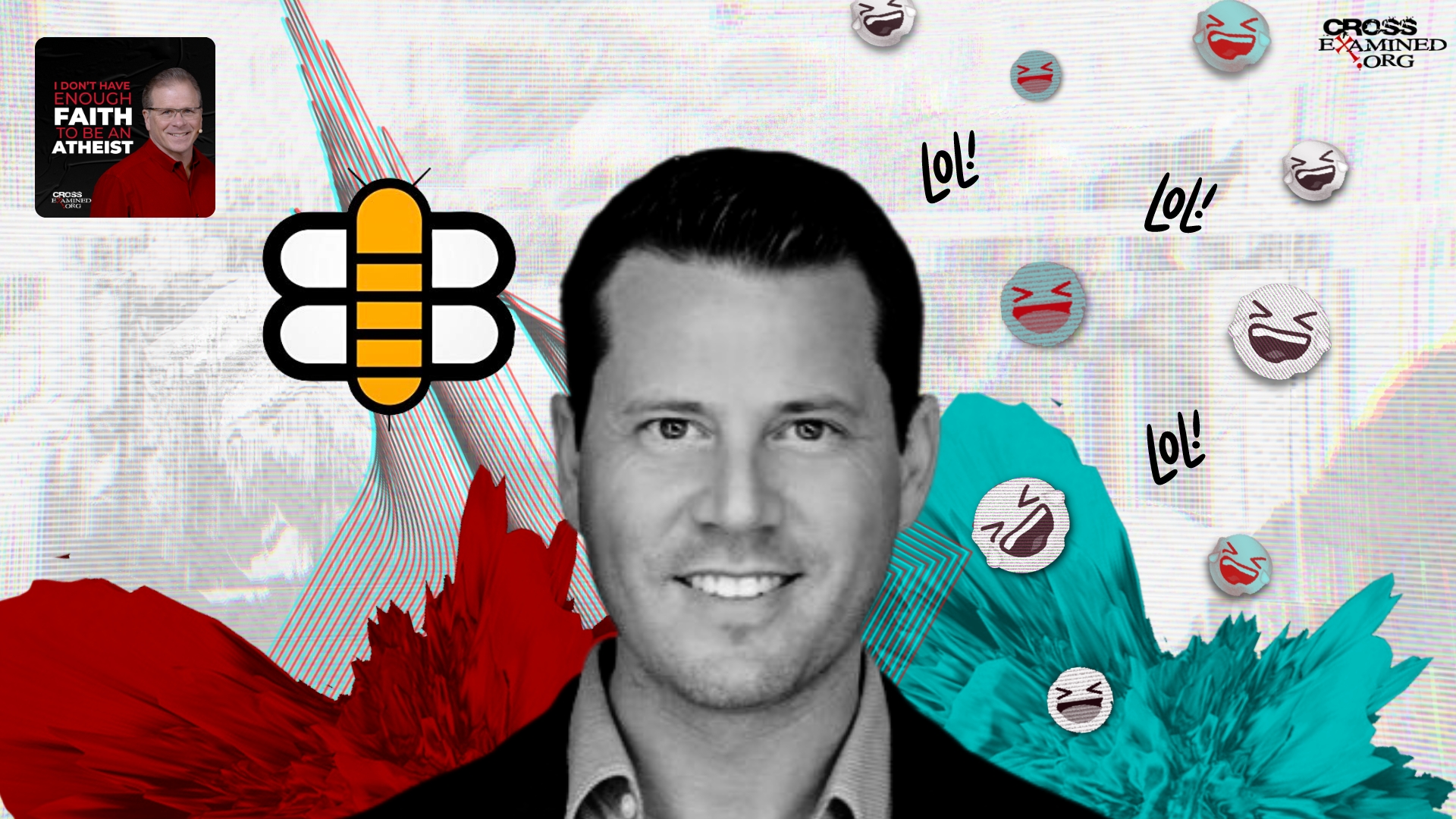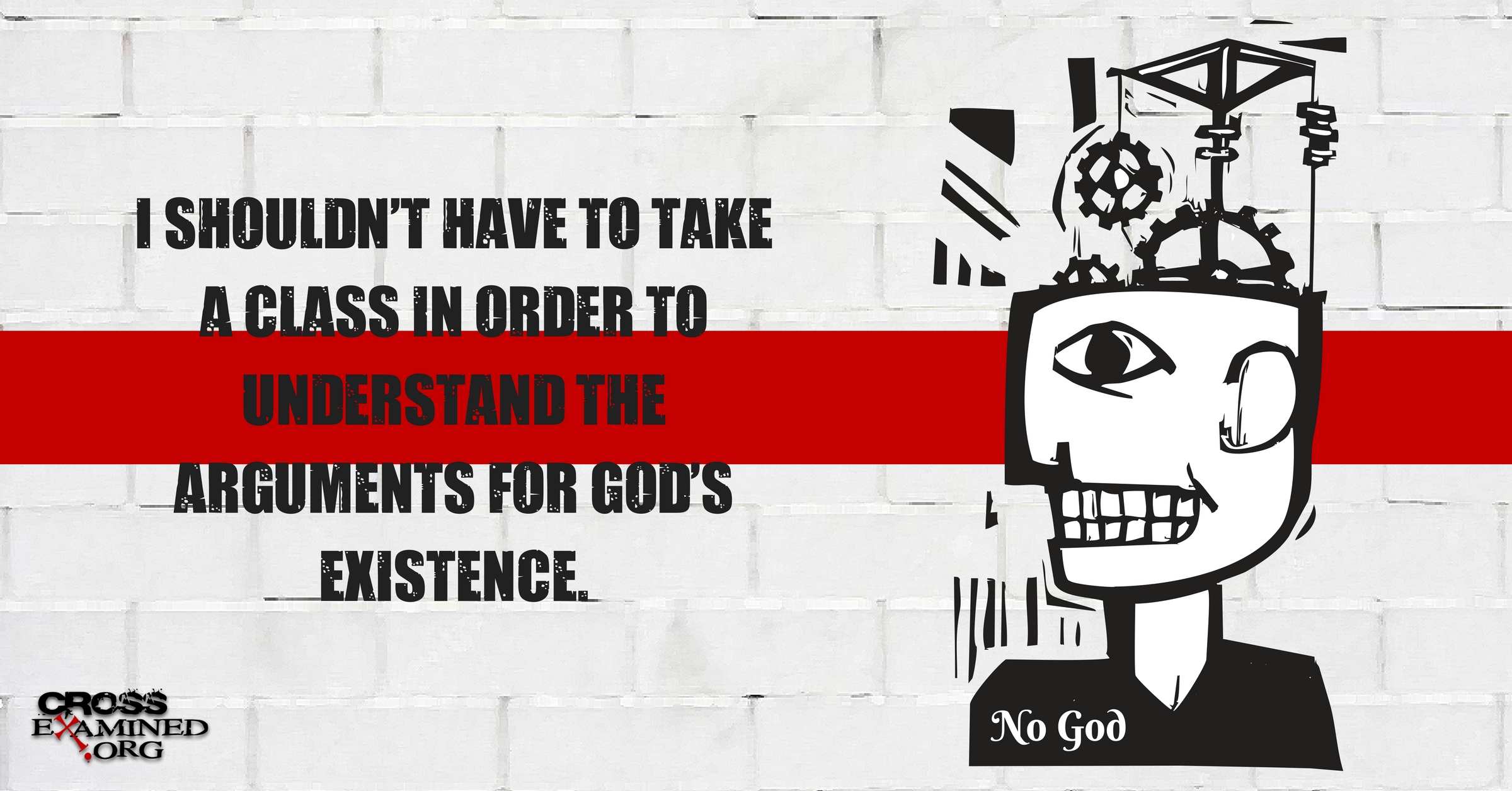Belief In God Is Not a Feeling
By Al Serrato
“Remember, a Jedi can feel the Force flowing through him.” Obi-Wan’s admonition to Luke Skywalker sums up what some skeptics probably think about Christianity. If it were real, they would be able to “feel it” in some tangible way, and perhaps also be able to manipulate its power. A skeptic I spoke with recently framed it this way:
“I don’t ‘feel’ God in my heart the way most theists claim to, I don’t see any external justification for his existence, and I simply see no good reason to believe. So why is it my fault that I don’t believe? God supposedly created me just the way I am, after all. So, I’m not ‘rejecting God’ since he never made himself known to me in any real way. So why is non-belief a crime at all? What is the effect of non-belief that is so horrible?”
These thoughts express, I suspect, what Americans are thinking in larger and larger numbers. Raised in a culture led in many areas by a secular – and in many instances anti-religious – elite, they feel increasingly confident that their view that nature is “all there is” comports with the way things actually are.
So, what is wrong with “non-belief”?
I suppose the first and quickest answer is that the thought itself is a bit incoherent. Consider what is being said. “Belief” is that state of mind in which one concludes that a fact is true. I believe that the car is red. I believe that John’s explanation regarding the accident is false. There is, of course, an issue of certainty. My belief regarding the car’s color may be mistaken, due to poor lighting; or my belief that John is lying may be wrong. But it makes little sense to say that, as to the car’s color, I have no belief. Or that I am hearing John’s explanation but believe nothing about it. Claiming to have “no belief” may seem high-minded and impartial, but it simply mistakes the way the human mind works. Whether we will it or not, our minds naturally move toward forming and reassessing beliefs. Indeed, at a basic level, we need to do so to stay alive. We must be constantly assessing our environment, our surroundings, to make prudent choices as to what to do next. Believing something about those choices and surroundings is indispensable.
As it relates to the question of ultimate things, one must acknowledge that complete certainty is not possible. So it’s fair for someone to say “I believe there probably isn’t a God, that the evidence I perceive of his existence is less compelling than the evidence which supports a conclusion that he does not exist.” But this begs the question: what is it that you are relying on forming this belief?
And this takes me to the second point, the one raised at the outset. If one approaches this assessment with the unspoken premise that God would cause himself to be “felt” in the manner suggested in Star Wars, then believing he is not there gains traction, since few, if any, people have such mystical experiences. Most committed believers I know never have such “feelings.” They conclude from the testimony of their senses, and the working of the reason of their minds, that a staggeringly complex and exquisitely organized creation requires a Creator. Though there are numerous logical proofs that support the belief in the existence of the immensely powerful and intelligent being behind all this, the common sense notion that something cannot be created by nothing has been more than sufficient for most people who ever walked this Earth.
As it relates to Jesus, and his divinity, the case is a historical one. The body of evidence relating to Jesus safeguarded and passed down through the centuries, establishes that he lived, that he was crucified and that he rose from the dead, leaving behind an empty tomb and galvanizing a following that changed the course of history. In so doing, he fulfilled numerous prophecies that predated his birth. The resurrection and the miracles he performed provide a solid foundation upon which one’s belief can rest. Numerous authors have detailed the evidence, but the PleaseConvinceMe website (here and here, for example) is as good a starting point as any for beginning to examine the logical proofs as well as the historical evidence.
So, is “non-belief” a crime? No more so that not believing in the power of medicine is the cause of someone’s death. A person with a fatal disease is not “punished” for refusing to get medical help; it is the disease, and not the lack of belief, that is causing the problem. So too with matters eternal. Christianity teaches that God’s law is written on our hearts so that we are all “without excuse.” Our own consciences will testify against us in the end. Christians do not believe God punishes us for “not believing.” He punishes us for rebellion – for the things we said and did which manifested this rebellion – by separating himself from us. Mercifully, he also provides the means for reuniting with him, through the work of Jesus.
Feelings are a wonderful part of human life. But in this galaxy, and in this time, they’re not particularly reliable in reaching sound conclusions or making wise decisions.
Original Blog Source: http://bit.ly/2gShhKx












Leave a Reply
Want to join the discussion?Feel free to contribute!